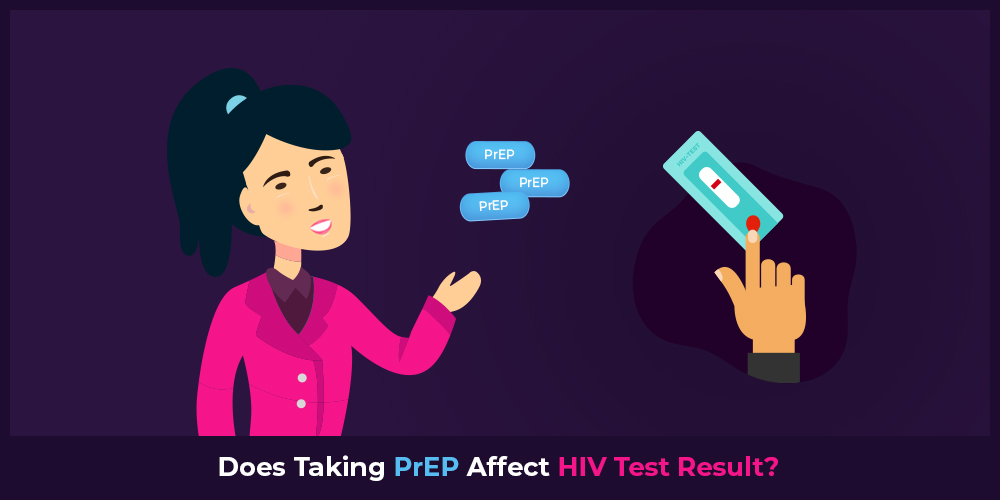Pre-exposure prophylaxis (PrEP) is medication for people who are at high risk of contracting HIV. When used consistently and correctly, PrEP can greatly reduce the risk of HIV transmission. PrEP is a popular form of HIV protection, but like any medication, it can lead to confusion and questions.
One common concern is whether PrEP use can affect HIV test results. This article will answer this question and provide a better understanding of PrEP and its effects on HIV tests.
How Does PrEP Work?
With a combination of antiretroviral drugs, PrEP interferes with the virus’s ability to replicate and spread throughout the body.
PrEP can be taken as a PrEP daily dose in pill form or a monthly injection. It is available by prescription in many countries and is recommended for use by people who are at high risk of HIV transmission. This includes people in a sexual relationship with someone who is HIV-positive, those who inject drugs, and those who engage in unprotected sex.
It is important to note that PrEP must be taken consistently to be effective, as it does not provide immediate protection against HIV transmission. It takes several days of daily use for the medication to reach sufficient levels in the bloodstream to provide adequate protection.
If taken correctly, the medication can reduce the chances of HIV transmission to less than 1%.
While most people taking PrEP do not experience any side effects, the drug may cause headaches, nausea, fatigue, and diarrhea.
Does Taking PrEP Affect HIV Test Results?
Regular HIV testing is an integral part of any PrEP regimen. When taken correctly, PrEP is highly effective in preventing HIV transmission. However, it does not provide absolute protection against the virus, and it is still essential to get tested regularly for HIV. This is especially important when you first start taking PrEP.
Taking PrEP can potentially affect HIV test results. PrEP contains antiretroviral drugs that suppress the presence of the virus in the blood, making it more difficult to detect in standard HIV tests. This can lead to a false negative result, which means that the test indicates that a person does not have HIV when in fact, they do.
That said, with the proper precautions, it is possible to take PrEP as prescribed and still get accurate HIV test results every time. To that end, 4th generation HIV tests are the best, most accurate option for those who are taking PrEP. In addition to detecting antibodies for HIV, these tests can detect the p24 antigen, a protein that is produced by the virus during the early stages of contracting HIV.
The 4th generation test can detect the p24 antigen even when virus levels in the blood are low due to PrEP use.
How Often Should PrEP Patients Get Tested?
As per CDC recommendations, people taking PrEP must get tested for HIV and other sexually transmitted infections (STIs) at least once every three months. Regular testing allows healthcare providers to monitor patients’ health and ensure they are taking the proper precautions along with their prevention medication.
Note that the ideal frequency of testing varies depending on individual risk factors and other considerations. For example, people with multiple sexual partners, those who engage in high-risk sexual behavior, and those who use injectable drugs will need more frequent testing.
To that end, PrEP is not a replacement for safe sex practices, such as using condoms or other physical barrier methods. Nor does PrEP protect against other sexually transmitted infections. Informing sexual partners of HIV status, getting tested for STIs, using individual needles, and using multiple methods of protection are all necessary measures that people must take to prevent HIV transmission and maintain sexual health.
Tested HIV Positive While on PrEP?
Take the following steps:
- Stop taking PrEP immediately, as it will no longer be effective. Stopping medication will also help prevent the evolution of drug-resistant HIV strains.
- See a doctor or healthcare provider as soon as possible after testing positive for HIV. They will evaluate your current health status, perform additional tests to confirm the diagnosis, and discuss treatment options and paths to take moving forward.
- Beginning treatment as soon as possible after the diagnosis is vital for managing the virus and reducing the risk of complications. Treatment involves taking antiretroviral therapy (ART), which is a combination of medications that suppress the virus and prevent further damage to your immune system.
- Inform your current and recent sexual partners of your HIV status and urge them to get tested as well.
- Seek help from friends, family, and healthcare providers as you take your medications. Support groups and counseling services can also be helpful in managing the emotional impact of a positive HIV diagnosis.
The Wrap Up
While PrEP can greatly reduce the risk of HIV transmission, it is not 100% effective. HIV testing while on PrEP is essential to ensure that breakthrough infections are detected and treated promptly, to ensure people’s continued well-being, and prevent the spread of HIV.
Opt for the fourth-generation test, which can detect HIV antigens and antibodies in the blood. This test is highly sensitive and can detect HIV very early on.
Those taking PrEP should get tested for HIV at least once every three months or as recommended by their healthcare provider.
Don’t wait to take control of your sexual health. With PrEP Daily, join the fight against HIV.
Contact us today to learn more about PrEP and how our Navigators can help you get started. Our PrEP Navigator will give you the guidance and support you need for HIV prevention. Take the first step towards a healthier, HIV-free future.

